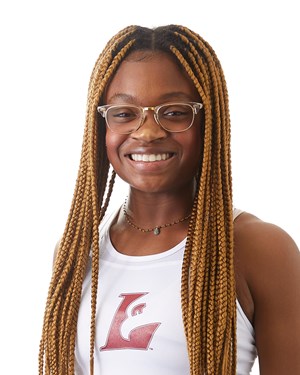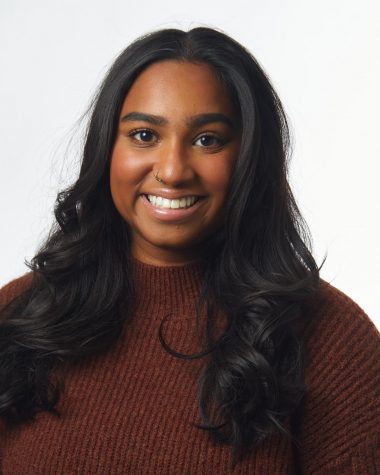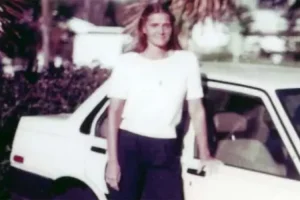“Being an ally is about taking action”: Student-athlete Miah Keller shares her experience as a woman of color at UWL

Retrieved from Miah Keller.
March 31, 2022
Miah Keller is a junior transfer from the University of Colorado-Colorado Springs (UCCS), where she was on the track and field team for 2 years. Keller is now a student-athlete for the University of Wisconsin-La Crosse track and field team.
Keller said, “The experiences and opportunities UCCS offered were great, however the change of scenery was necessary both spiritually and financially. I was able to join the track team at UWL and continue my track career; this was the fresh start I needed.”
Keller is one of few student-athletes of color at UWL. When asked how the racial demographics of La Crosse have affected her, Keller said the following:
“The diversity rate in La Crosse is low; about 10% of POC make up the population of La Crosse while 90% are white. Transferring to UWL has been a big shift for me as I’ve always been involved in relatively diverse communities. The culture in La Crosse does not fully align with the culture in my home city. Although the change in environment hindered me in some aspects, it also helped and allowed me to continue my track career,” she said.
According to Keller, the demographics of UWL are not the only racial impacts she felt on campus. “I feel the stares and the curiosity. I get it but I am human just like you. My experiences should be validated the same as everyone else.”
Keller said that UWL athletics became a means of support for her after an injury. “I was injured for roughly two years and had to do many things to heal and shorten the recovery process. I had to do physical therapy and modify workouts as a result of my injury,” said Keller. “My coach, teammates, athletic trainers and other faculty all have aided in my journey. They’ve been helpful and supportive. Despite the diversity rate at UWL being lower than the middle and high school I went to and being the only [person of color] on the track team, I still feel like I can express my true self.”
UWL is a predominantly White institution (PWI) and addresses diversity and inclusion through services offered by the office of multicultural student services (OMSS) and the center for transformative justice (CTJ). Keller said while these services are helpful, there is room for improvement.
“I’m sent updates on multicultural efforts as well as resources when key or controversial events happen. This directs students in the right direction of achieving their goals and providing any assistance along the way. I see signs throughout campus promoting the multicultural students and/or events that are held on campus. Yet, there is a lack of active discussion and a small percent of the community is educated on diversity and understanding culture,” said Keller.
“The welcoming environment UWL envisions is not the reality of what I see walking around campus. It can be easy to preach certain goals and values, however they can be harder to attain. I see very few people who are of different racial and ethnic backgrounds,” she said. “The university acknowledges injustices in the community, but being an ally is also about taking action. If the university continues with their efforts to support and promote diversity and inclusion, more people may gravitate towards the opportunities offered. They will feel validated and as though their voice and experiences matter.”
Keller said she has a vision for what she hopes for UWL. “An accepting environment that is open to people who have different life experiences or life goals is the utopia I envision,” said Keller. “A community that accepts people of all backgrounds. Ultimately surrounding yourself with people who are different exposes you to new ideas.”






